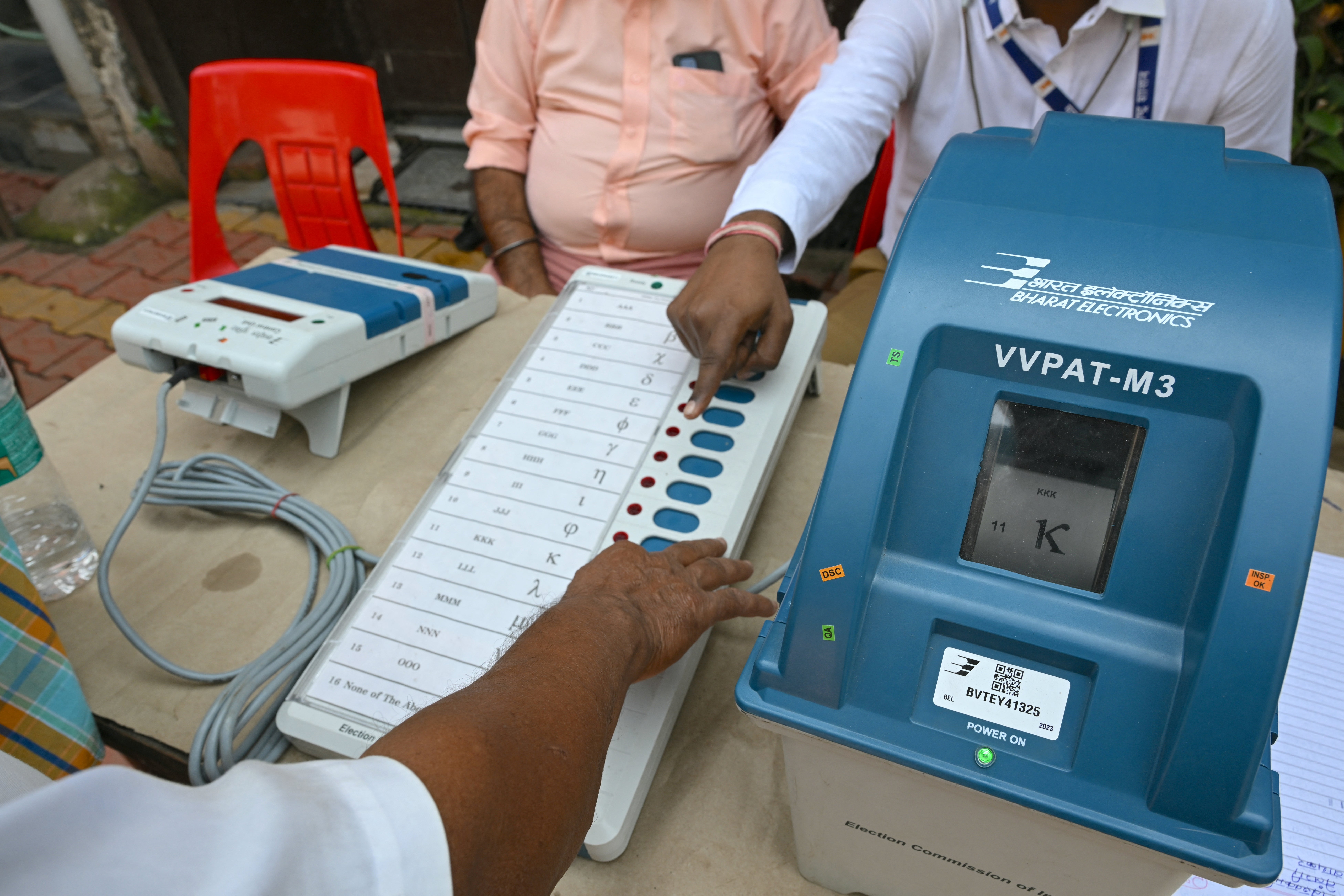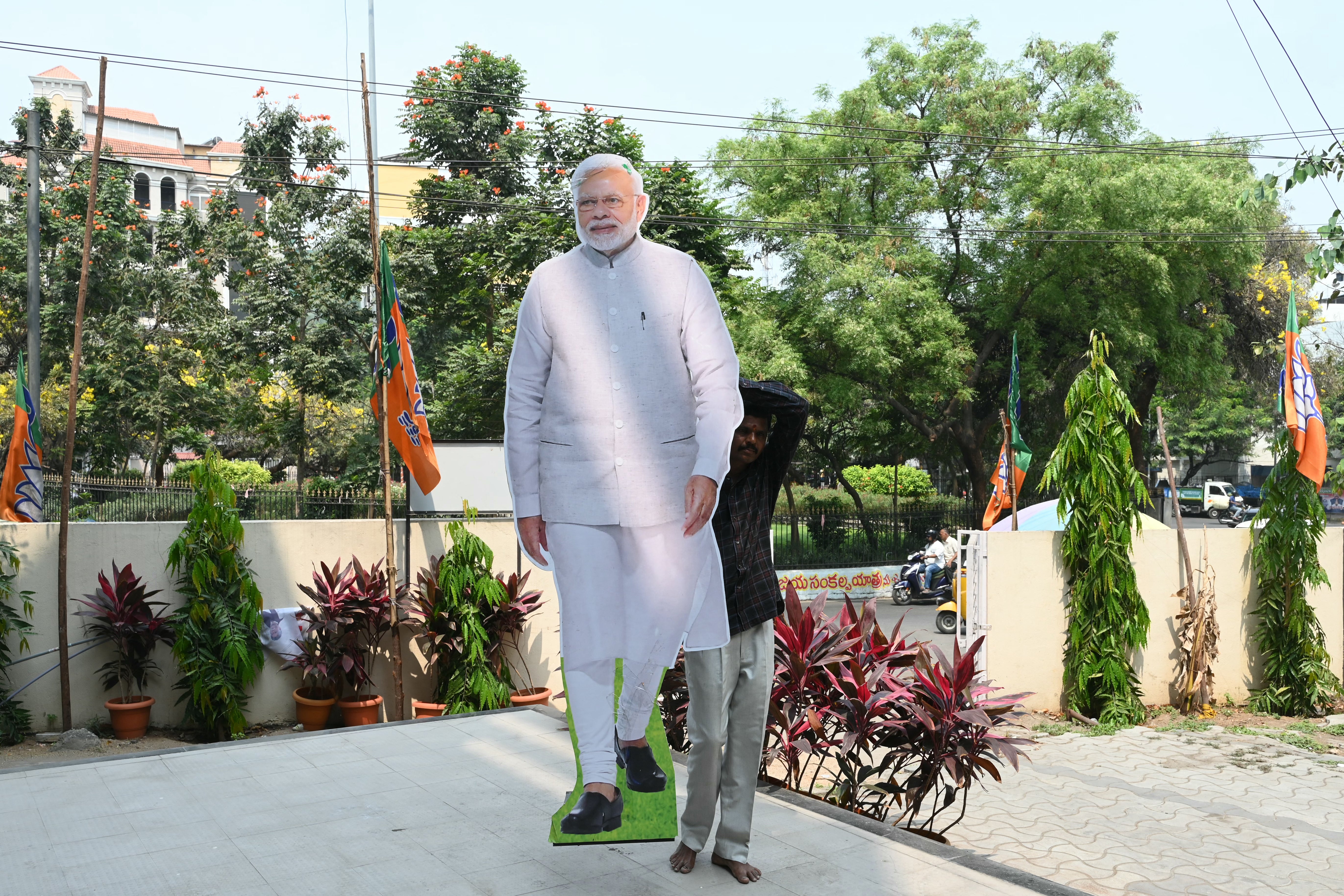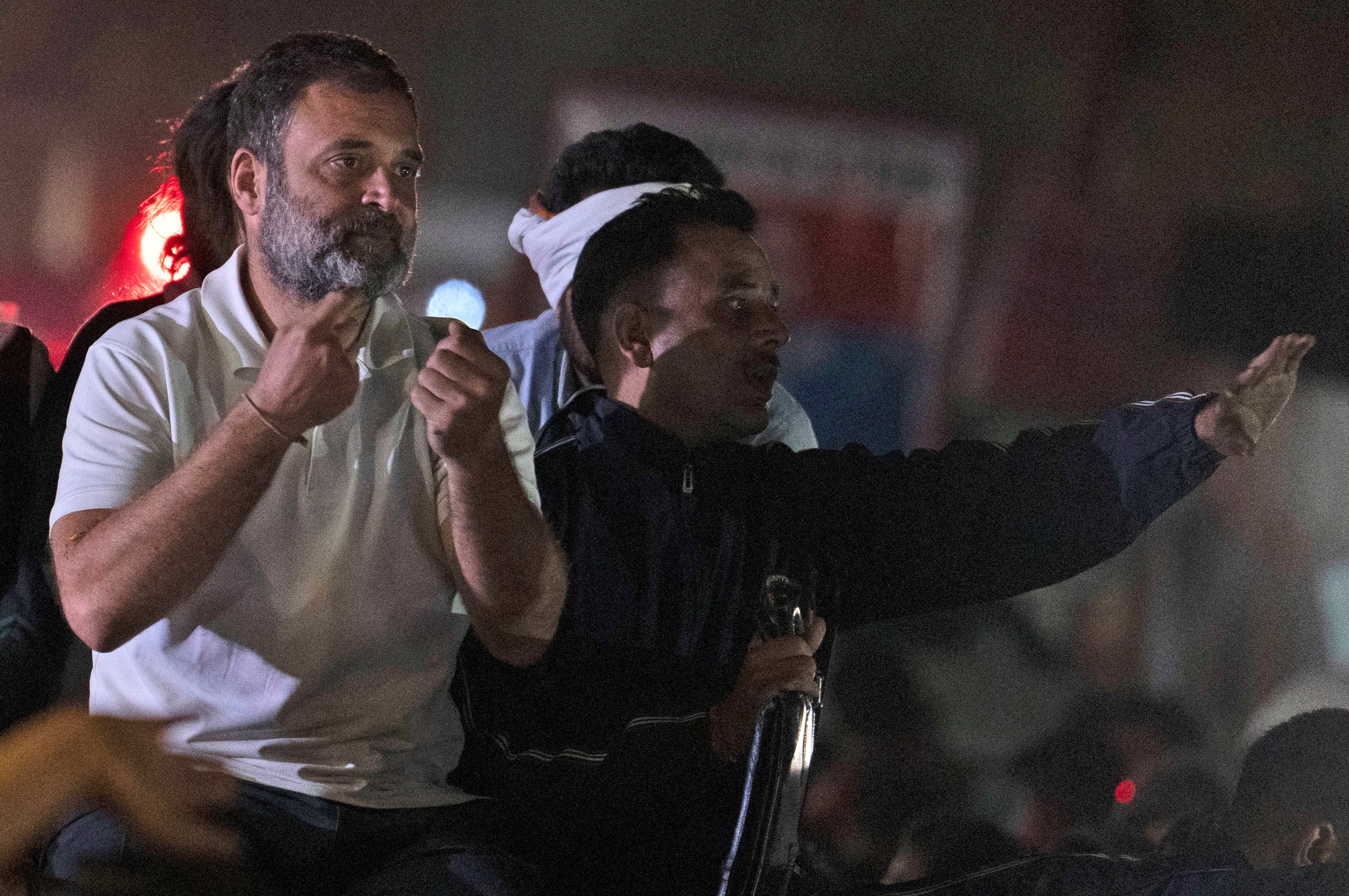India sets stage for world’s biggest election as prime minister Narendra Modi seeks third term
Nearly a billion people will cast their vote to elect 543 MPs

Your support helps us to tell the story
From reproductive rights to climate change to Big Tech, The Independent is on the ground when the story is developing. Whether it's investigating the financials of Elon Musk's pro-Trump PAC or producing our latest documentary, 'The A Word', which shines a light on the American women fighting for reproductive rights, we know how important it is to parse out the facts from the messaging.
At such a critical moment in US history, we need reporters on the ground. Your donation allows us to keep sending journalists to speak to both sides of the story.
The Independent is trusted by Americans across the entire political spectrum. And unlike many other quality news outlets, we choose not to lock Americans out of our reporting and analysis with paywalls. We believe quality journalism should be available to everyone, paid for by those who can afford it.
Your support makes all the difference.India is set to begin its phased voting process on 19 April to select a new parliament, Election Commission of India, the nation’s electoral body announced on Saturday.
Nearly one billion people will participate in the general elections to choose a prime minister, marking it as the largest electoral event globally.
Prime minister Narendra Modi is seeking a straight third term in office and faces little challenge from an alliance of scrambling opposition parties.
The election for 543 seats in the Lok Sabha, or lower house of parliament, will be held over almost seven weeks, beginning 19 April.
The polls will be conducted through seven phases across the 28 states and six union territories until 1 June. The counting of votes will begin on 4 June and is expected to be completed in two days.
More than 2,400 political parties are expected to put up candidates for the general elections, which early opinion polls predict would be dominated by Mr Modi's ruling Bharatiya Janata Party (BJP).

Voters in the Indian states of Sikkim, Odisha, Arunachal Pradesh and Andhra Pradesh would simultaneously cast their ballots to elect members of state legislatures.
Almost 970 million registered Indian voters above the age of 18 would cast their ballot to elect MPs at over a million polling stations across the country.
India's election commission on Saturday announced it would rope in nearly 15 million government employees, many of them teachers and junior workers, to help conduct the mammoth election.
Every phase of the election will span a single day, during which numerous constituencies - encompassing a variety of states, bustling urban centres, and remote villages - will cast their votes.

The staggered polling allows the government to deploy tens of thousands of troops to prevent violence and transport electoral officials and voting machines.
Chief election commissioner Rajeev Kumar issued a warning against hate speeches and "speeches along caste or religious lines, no criticism of anyone's personal lives".
The commission said it has employed 2,100 advisors to monitor the election campaigns and take "strong actions" against violation of guidelines.
Mr Modi, 73, began his election blitzkrieg on Saturday immediately with the announcement of the dates. "The biggest festival of democracy has started," the prime minister said on X.
"I have full confidence that we will get full affection and blessings of 1.4 billion family members and more than 960 million voters for the third consecutive time [sic]," he added.
Mr Modi and his Hindu-nationalist Bharatiya Janata Party [BJP] had been in campaign mode for months before the polling dates were announced. The prime minister has been flying around the country almost every day, inaugurating new projects, making announcements, taking part in religious events and addressing public and private meetings.
Mr Modi in his speeches has been highlighting economic growth during his two terms which has resulted in India becoming the fastest-growing major economy in the world at present. A main talking point has also been his party's agenda for a Hindu majoritarian society, including the inauguration of a grand temple to Lord Ram on the site of a destroyed mosque.
Mr Modi has set a target of 370 seats for the BJP and 400-plus for the National Democratic Alliance (NDA) - aiming for a four-decade high number.
His main opposition, the Indian National Congress party, which has ruled India for much of its time since independence in 1947, formed a 28-party alliance called INDIA (Indian National Developmental Inclusive Alliance) to jointly fight the BJP.
Join our commenting forum
Join thought-provoking conversations, follow other Independent readers and see their replies
Comments